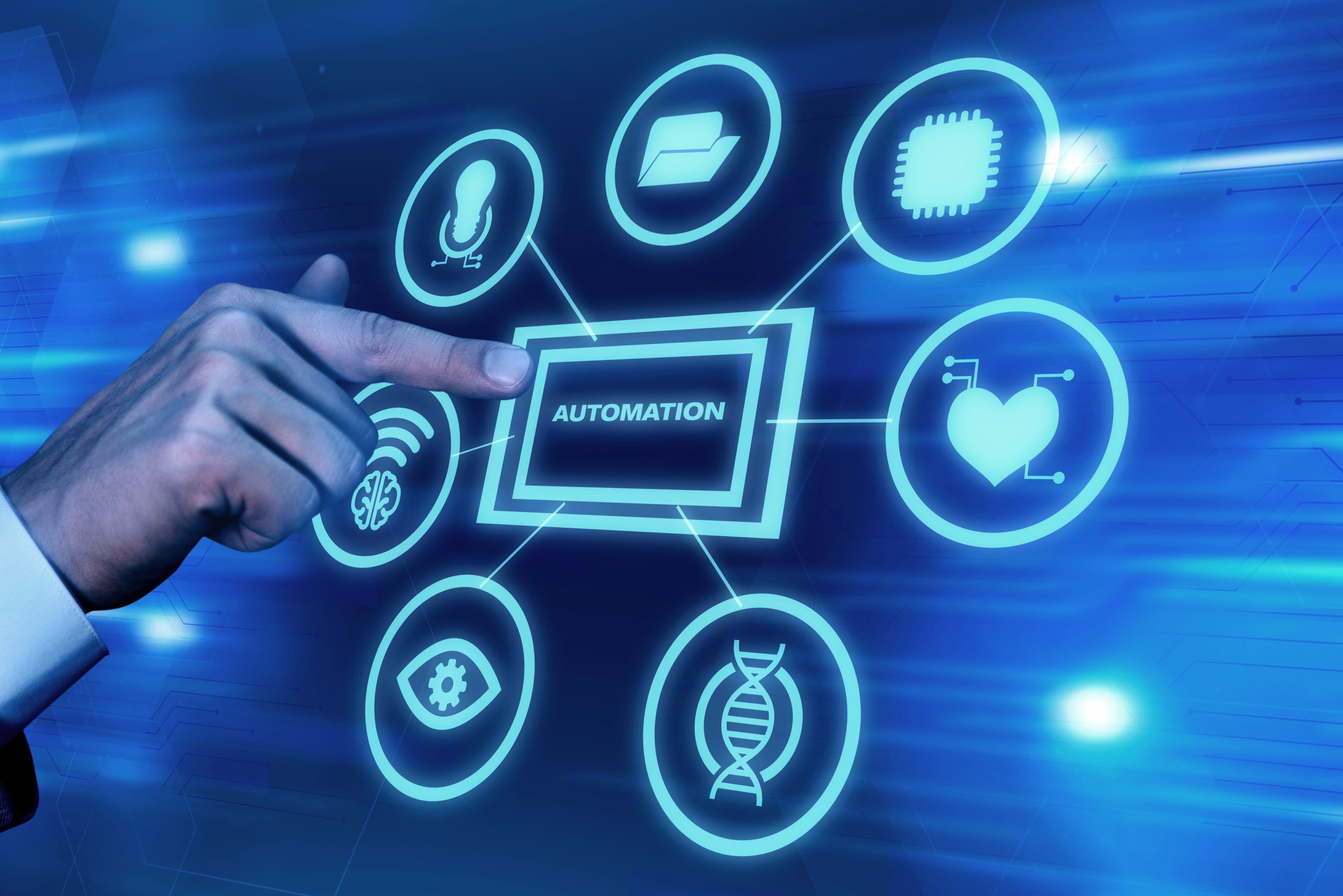Intelligent Automation as a digital innovation that is making waves across industries worldwide. Sometimes referred to as Intelligent Process Automation (IPA), it enables end-to-end-process automation or hyperautomation. Hyperautomation was ranked among the Top 10 Strategic Technology Trends for 2021 by Gartner. So why is hyperautomation taking over modern enterprises?
Why Intelligent Automation Is Being Widely Adopted
This is due to a couple of factors. The first is IPA solutions’ ability to automate the processing of unstructured content. Processing unstructured content is a huge element in most industries’ processes. It is a challenge for 90% of businesses and the amount of unstructured content is growing in volume by 50-60% per year.
Intelligent Process Automation (IPA) harnesses Artificial Intelligence (AI) and Robotic Process Automation (RPA). The AI component handles processing unstructured content and also enables smarter workflows that learn and adapt. The RPA component automates a range of other functions and bridges systems enabling end-to-end process automation. This game-changing ability of AI is thanks to various other technologies such as Machine Learning (ML), Natural Language Processing (NLP), Computer Vision, document understanding and more. In addition to handling just about any type of unstructured content, it enables user-friendly, conversational processes and workflows that improve user experience and efficiency.
Enterprises are paying attention to this disruptive technology and by 2022, 65% of organizations will introduce IPA. The Intelligent Automation market is expanding rapidly – it is expected to grow to approximately USD 14 billion by the end of 2021.
The possibilities are practically limitless when you think of the number of use cases where companies can harness Intelligent Automation. Any data-intensive, repetitive process can be automated for massive improvements in operational efficiency and tremendous ROI. Some companies have even reaped 300% ROI from well-chose IPA use cases.
Improvements Thanks to Intelligent Automation
One of the most tangible benefits that IA can impart on employees is the amount of time they a save carrying out repetitive tasks that could be otherwise assigned to IPA solutions. This is a win for companies and a win for employees who can focus on what humans do best while intelligent automation handles the bulk of the grunt work.
Many enterprises across enterprises struggle with:
- Offices end up behind on unprocessed physical paperwork.
- People unnecessarily spend hours in queues waiting to resolve routine issues. This can be customers for a company or even employees going through internal processes.
- Delays and inaccuracies that have a negative impact on customer satisfaction.
- Inability to cope with higher volumes of unstructured content and processes that need to scale.
Intelligent automation overcomes these challenges and even helps automated processes or departments function more intelligently for better business outcomes.
As you can see, manual processes for data-intensive tasks lead to poor efficiency and dissatisfied employees. This translates to dollars as a report by Gallup revealed that over 80% of employees worldwide felt dissatisfied with their jobs, translating to a $7 trillion loss in productivity.
Even in the medical field over 80% of healthcare organizations note their medical staff experiencing burnout due to administrative tasks that have to be carried out in addition to their medical services. A huge amount of this workload could be offset by IA allowing medical staff to be more focused on human life saving more than 10 million lives per year. The world and the workplace can be a more humane place to live and work while ensuring efficient operations. This is because IPA can cut down manual effort by 60% while boosting productivity.
Success with Intelligent Automation – What It Takes
The number of businesses that are adopting IPA solutions for higher productivity has drastically risen. Research by Deloitte shows that while over 50% of companies began their IA initiatives when compared to 2019.
Regardless of this uptake in adoption numbers, only 15% could report effectively scaling 10 automations. This is because of the many hurdles in the way of IA such as a lack of any automation grounding, siloed teams, disintegrated processes and resistance to change. You can overcome these obstacles by:
- Placing emphasis on a human centric approach, IA that does not address human capacities is inherently flawed.
- Identifying use cases clearly and defining the KPIs and ROI expected from them. Having a clear vision for intelligent automation in your enterprise.
- Strong support from management to support expansion of intelligent automation and scaling of processes.
- Start small & expand. Gain some quick wins with an initial use case and then expand your intelligent automation initiativeto enable end-to-end process automation so as to speed up workflows and create a more positive customer experience.
- Democratized IA to create a more inclusive environment that lets anyone to use low-code tools to build automation applications. Some solutions even offer drag n drop functionality to build automated workflows.
- Hasten your implementation with appropriate technologies that can support your goal of enterprise-wide intelligent automation.
Intelligent automation will soon be the new normal for most modern enterprises. Its core philosophy is to boost operational efficiency, enable agile and intelligent business operations and elevate human experiences and render employee’s tasks easier. As such a human-centric approach is best adopted when designed automation processes.
Embracing IA is a beneficial step forward for your business, you can read our blog on Why Hyperautomation is Imperative for Modern Enterprises or check out the Top 5 Hyperautomation Trends to Look Out for in 2021.
If you’re looking for a partner in helping you along the way to hyperautomation the Rapid Acceleration Partners team would be glad to help. Our next-gen, AI-powered content intelligence platform RAPFlow enables full lifecycle AI orchestration on a single platform. When used in tandem with our RPA tool RAPBot, it provides end-to-end workflow automation capabilities that can be deployed in just weeks. You can even build your own use case and the platform can easily integrate with your existing systems. Book a demo to get a more detailed understanding of how our products can transform your business.




